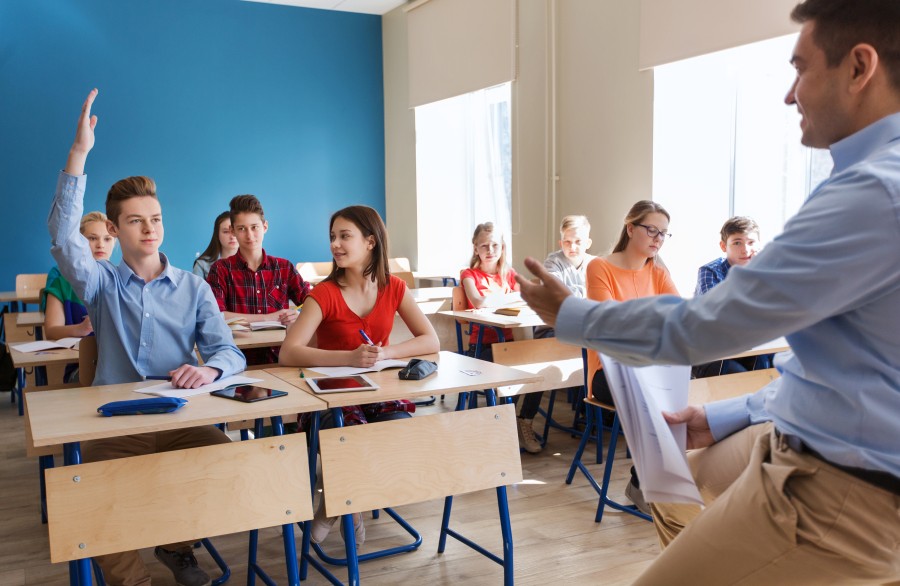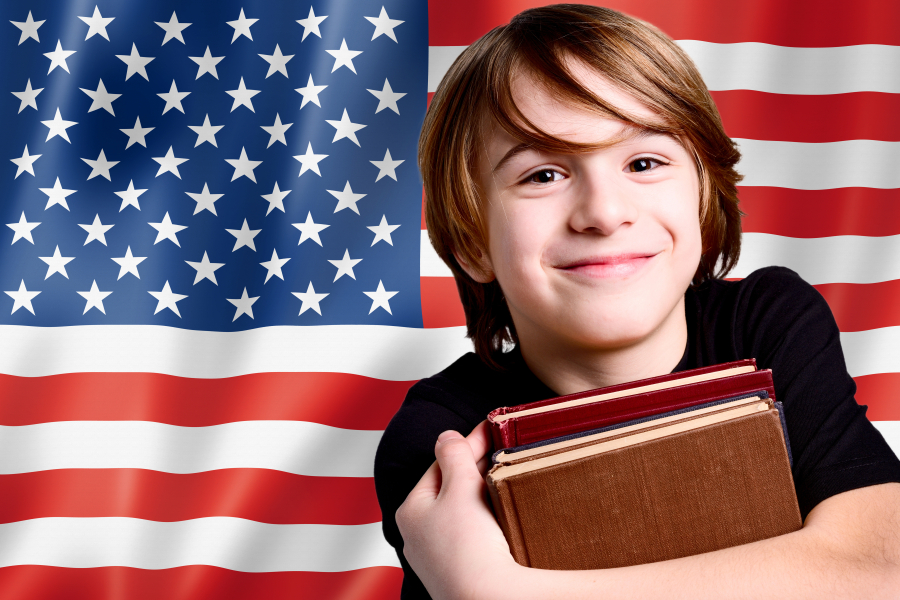
Welcoming the challenges and triumphs of bilingual education in the City of Light, Paris, cultural and linguistic cradle par excellence, requires a unique approach. For parents of bilingual children, the quest for adapted education is essential. In this article, Helping bilingual children at school in Paris, we delve into the pedagogical strategies and educational structures that support the harmonious development of young polyglots. A puzzle where each piece - whether it's multilingualism, school adaptation, or social integration - is pivotal to the blossoming of students. Join us in this enriching exploration, as the school journey of bilingual children in Paris is anything but monotonous.
The advantages of bilingualism in children in Paris
In a multicultural metropolis such as Paris, bilingualism opens the doors to borderless communication and better cultural understanding for children. Bilingual education not only refines linguistic skills in young learners, but it also stimulates cognitive flexibility, problem-solving, and creativity. The brain of children ages from 3 to 12 years is particularly receptive to language learning, and in Paris, our school offers total immersion programs that encourage children to master French and English harmoniously and naturally. The holiday camps and extracurricular activities, such as the Wednesday Club, also allow bilingual children in school Paris to practice languages in a fun and social setting.
- Stimulation of cognitive development and better access to global opportunities
- Language immersion programs in schools such as Montessori School and Crayons Bilingual Preschool
- Extracurricular activities in English and French to reinforce daily practice
In short, the competitive advantage that a bilingual school in Paris provides is a precious investment for the future of children in a globalized and interconnected society.
Choosing the right bilingual school in Paris: criteria and options
Paris offers a wide range of bilingual educational options, but choosing the right school environment for your child can be complex. It is essential to consider criteria such as the school's pedagogical philosophy, the balance between languages of instruction, and the qualification of teachers. Institutions such as Montessori School emphasize self-directed learning and respect for each child's pace, while Crayons Bilingual Preschool opt for a more structured method. International schools in Paris, such as the Canopée International School, offer cultural diversity and a curriculum that prepares children from for integration into Anglophone and Francophone educational systems.
- Evaluation of the quality of the bilingual program and individualized educational approach
- Recognition of schools by local and international educational institutions
- Feedback from parents and adaptation of the program to the specific needs of students
It is also important to visit the establishment, meet the teaching team, and discuss with other parents to get a clear idea of the school environment in which your child will evolve.
Social and emotional integration of bilingual children in the Parisian school environment
Social and emotional integration is a fundamental aspect of the educational success of bilingual children in Paris. The ability to build relationships with peers and teachers in both languages can greatly influence the well-being and motivation of students. Our students must feel comfortable in their environment to express their full potential. Initiatives such as the preschool nursery program are designed to facilitate the transition of the youngest, while group activities and mentoring contribute to the integration of older children.
- Workshops that promote cultural diversity and self-expression
- Psychological and pedagogical support for newcomers
- The importance of the roles of parents in building children's self-confidence
Schools must offer a secure and stimulating environment where communication and emotional expression in both languages are encouraged.
Pedagogical strategies promoting bilingualism at school
Effective pedagogical strategies are crucial to encouraging bilingualism in children. A dynamic and interactive teaching method that alternates between French and English allows students to actively develop their linguistic skills. For in-depth learning, teachers use various educational supports, including literature, digital media, and games. School year programs are often characterized by thematic units that weave together multiple subjects - such as math, science, and the arts - in both languages.
- Immersive approach where vocabulary and grammar are learned in the context of daily life and school
- Montessori school principles for fostering an environment of self-guided learning and discovery
- Utilization of bilingual tools and technology to enhance learning
The integration of cultural activities, such as celebrating international holidays, further solidifies students' understanding and appreciation of both languages and cultures.

Challenges faced by bilingual children and their solutions
Bilingual children may face specific challenges, from adapting to two distinct linguistic systems to cultural and identity issues. These challenges can manifest as academic or social difficulties, as well as a certain frustration or confusion. To help overcome these barriers, it is essential to implement tailored support with regular follow-up and close communication between the school and the family. Practical solutions include strengthening the minority language at home, participating in bilingual extracurricular activities, and resorting to tutoring if necessary. An inclusive and caring school environment is also essential to allow children to express themselves and develop confidently in their two languages.
- Individual follow-up and continuous evaluation of progress in language
- Parents' involvement in the bilingual educational journey
- Activities outside of school to maintain balanced exposure to both languages
By taking into account the individual needs of each child, these challenges can be transformed into opportunities to strengthen bilingualism and enrich the educational experience.
Testimonies and experiences of parents of bilingual students in Paris
Testimonies from parents of bilingual students in Paris provide a vivid perspective on the real impact of a bilingual education. These shared experiences often highlight the satisfaction of seeing their children develop in a rich and diverse environment, effortlessly engaging in conversations in French English. The stories shed light on visible benefits such as children's ease in traveling, interacting with people from different cultures, and preparation for an increasingly international job market. Many parents also notice a more elaborate cognitive development, with an ability to think and solve problems in a more creative way. This is undeniable proof of the added value of a bilingual education, especially in urban and cosmopolitan contexts like Paris.
- Accounts of academic and social advancements of children
- The contribution of bilingualism to a global vision of the world
- The essential role of parental support in the success of the bilingual journey
These authentic testimonies are a source of inspiration and a valuable resource for families considering the bilingual journey for their children.
